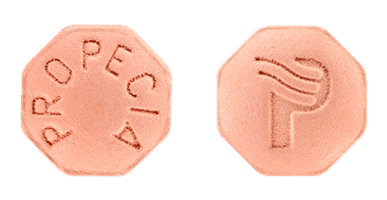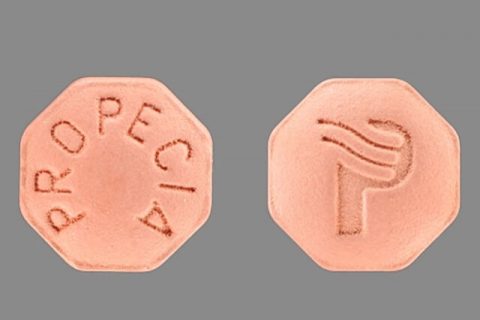
Propecia Side Effects
Propecia can have side effects impacting men’s sexual health and mood. Serious side effects of this male-pattern baldness treatment include erectile dysfunction, depression and breast cancer. Propecia also carries a warning for increased prostate cancer risk.
Article Continues Below

Board-certified physicians medically review Drugwatch.com content to ensure its accuracy and quality.
Drugwatch.com partners with Physicians’ Review Network Inc. to enlist specialists. PRN is a nationally recognized leader in providing independent medical reviews.
Reviewer specialties include internal medicine, gastroenterology, oncology, orthopedic surgery and psychiatry.
Drugwatch.com has been empowering patients for more than a decade
Drugwatch.com has provided reliable, trusted information about medications, medical devices and general health since 2008. We’ve also connected thousands of people injured by drugs and medical devices with top-ranked national law firms to take action against negligent corporations.
Our team includes experienced medical writers, award-winning journalists, researchers and certified medical and legal experts. Drugwatch.com is HONCode (Health On the Net Foundation) certified. This means the high-quality information we provide comes from credible sources, such as peer-reviewed medical journals and expert interviews.
The information on Drugwatch.com has been medically and legally reviewed by more than 30 expert contributors, including doctors, pharmacists, lawyers, patient advocates and other health care professionals. Our writers are members of professional associations, including American Medical Writers Association, American Bar Association, The Alliance of Professional Health Advocates and International Society for Medical Publication Professionals.
About Drugwatch.com
- Assisting patients and their families since 2008.
- Helped more than 12,000 people find legal help.
- A+ rating from the Better Business Bureau.
- 5-star reviewed medical and legal information site.
Testimonials
"Drugwatch opened my eyes to the realities of big pharmacy. Having a family member with major depression and anxiety, I was looking for information on her medications. I found information that was very helpful, that her psychiatrist never told her."
- Common Side Effects
- Decreased libido, erectile dysfunction, ejaculation disorder and hypersensitivity
- Serious Side Effects
- Depression, suicidal ideation and cancer
- Boxed Warning
- Higher risk of developing high-grade prostate cancer, and a risk of elevated prostate-specific antigen (PSA) values. High PSA levels may indicate the presence of prostate cancer. Pregnant people should not take Propecia due to the risk of male fetuses developing genital malformations. Children should not take Propecia.
Recent Propecia Side Effects Information
As of June 30, 2024, the most commonly reported Propecia side effects are erectile and sexual dysfunction, depression, anxiety and decreased libido, according to the Food and Drug Administration’s Adverse Event Reporting System. Patients have reported just over 6,000 side effect cases.
| FDA Adverse Event Reports for Propecia Side Effects | |
|---|---|
| Total cases reported | 6,164 |
| Serious cases (including deaths) | 3,332 |
| Deaths | 138 |
Disclaimer: Reports sent to the FDA don’t necessarily mean the drug caused an adverse event. Consult a health care professional before stopping or changing medication.
While adverse reactions to Propecia are rare, they can become serious. Over half of the total reported number of cases turned into severe cases.
Various forms of sexual dysfunction, such as decreased libido and erectile dysfunction, make up 80% of the reported effects. Additionally, over 40% of the reports relate to having an altered mental state due to conditions such as increased anxiety or depression.
Although Propecia side effect reports have decreased by 22% annually since 2016, those who use Propecia should still promptly inform their doctor of any side effects.
Latest FDA Warnings and Actions for Propecia
In June 2022, the FDA rejected a petition from the Post-Finasteride Syndrome Foundation. The petition aimed to take Propecia off the market due to its alleged association with feelings of depression, suicidal ideation and persistent erectile dysfunction.
In response, the FDA required that the drug manufacturers add the symptoms of suicidal ideation and depression to the medication’s warning label. However, they did not agree that the foundation had enough evidence to support discontinuing the drug.
Most Common Side Effects of Propecia
Many of the common side effects that impact mood and sexual function can significantly impact a patient’s quality of life.
- Anxiety
- Decreased libido
- Depression
- Erectile dysfunction
- Sexual dysfunction
In addition, less common side effects may also cause distress among people using Propecia.
- Alopecia
- Back pain
- Cognitive disorder
- Decrease in semen volume
- Disturbance in attention
- Dizziness
- Ejaculation disorder
- Fatigue
- Gynaecomastia (enlarged male breasts)
- Headache
- Insomnia
- Joint pain
- Lowered blood testosterone levels
- Panic attack(s)
- Testicular pain
- Weakness
Environmental and physical conditions can also cause many of these side effects. Ask a health care provider about any new or worsening ailments you experience on the medication.
Duration of Side Effects
The adverse effects of Propecia didn’t resolve immediately for most patients who stopped taking the medication. Side effects resulting from Propecia often persist well after the patient stops taking it.
Less intrusive side effects can clear up in a matter of days to a few weeks. More persistent or serious side effects can take months or even years of treatment to fully resolve.
A doctor can help adjust your dosage to manage side effects better.
Serious Propecia Side Effects
Propecia’s most common side effects can also be its most serious. They include sexual dysfunction and depression along with heightened cancer risks.
- Depression and suicidal ideation
- Development of breast cancer
- Erectile dysfunction
Talk to your doctor if you are already at an increased risk for any of these conditions. You may be able to find a treatment that does not increase your risk of these side effects.
Propecia and Erectile Dysfunction
Various research over the past decade has pointed to Propecia and its active ingredient, finasteride, as potential instigators of erectile dysfunction. One study published in the journal PeerJ found that 530 patients in a study of 11,909 participants developed erectile dysfunction after taking Propecia. The condition was temporary in most of those patients, but 167 of those patients developed persistent erectile dysfunction. This dysfunction took an average of 3-4 years to resolve after the patients stopped taking the drug.
Drugwatch spoke with a man from Florida who claims that taking Propecia devastated his life. As a result, he had resorted to using testosterone replacements, medications for erectile dysfunction such as Viagra and Cialis, and even underwent a penile implant. He asked to be identified only as “DR.”
“Whenever people looked at me, they saw this successful, good-looking guy. But, it’s like I’ve got this secret,” he said. “I would love to be married and settled down, but I can’t enter a relationship and say, ‘Hey, you know what? I can’t have a consistent erection.’”
Another man from New York state, who asked to be identified simply as “G.M.,” initially took Propecia to address his hair loss. However, he experienced many adverse side effects, including mood problems and sexual disorders.
“I don’t know of anything that can change you so much,” G.M. told Drugwatch. “I don’t know any other pharmaceutical that basically castrates you.”
Merck, the manufacturer of Propecia, has faced numerous Propecia lawsuits. Many of the plaintiffs claimed that Propecia caused erectile dysfunction that required extensive lengths of time or medical assistance to overcome.
Depression and Suicidal Ideation
Evidence emerging over the past few years has related Propecia to various mental health conditions, such as depression, anxiety and even suicidal ideation.
A study from George Washington University in 2012 interviewed patients who had discontinued taking finasteride at least three months prior to the study. The researchers found that 44% of participants had persistent suicidal thoughts, despite discontinuing the drug. The study’s control group of individuals who did not take finasteride had a suicidal ideation rate of only 3%.
The difference regarding depressive symptoms was also significant. 10% of the control group expressed some form of depression, but that rate rose to 75% among participants on Propecia.
Organizations beyond the FDA have taken notice of the drug’s potential impacts on mental health. A press release issued by the United Kingdom’s Medicines and Healthcare products Regulatory Industries asked men currently taking finasteride to remain vigilant for any adverse effects on their mood.
If you are experiencing major depressive episodes or are contemplating taking your own life, call a mental health professional immediately.
Cancer Risks With Propecia
The label Merck puts on Propecia warns that taking the drug may increase the risk of developing high-grade prostate cancer, the deadliest form of this disease. However, there is mixed evidence for this.
While research from the National Cancer Institute has shown that taking finasteride can lower the likelihood of developing low-grade prostate cancer for men ages 55 and older, those same studies discovered a correlation between finasteride use and higher rates of high-grade prostate cancer. However, because finasteride decreases prostate size, it is unclear if the drug directly caused these higher rates. It’s possible that the smaller size made it easier to detect pre-existing cancer during screenings.
High-grade prostate cancer is an aggressive form of cancer that can attack lymph nodes and other areas of the body. Because of how widely it can spread, high-grade prostate cancer can be difficult to treat.
In 2011, Merck also added male breast cancer to its list of potential adverse effects. The label instructs those taking the medication to seek treatment if they experience lumps on their breasts, pain or discharge.
Case Study: John Pfaff and the Side Effects of Propecia
John Pfaff was a successful IT executive and a devoted family man living near San Diego. His life took a tragic turn after he began taking Propecia, a popular drug by Merck & Co., for hair loss in May 2008. His downward spiral started with mood changes and escalated to severe depression and suicidal ideation.
Onset of Symptoms:
Within a year of starting Propecia, John began exhibiting disturbing symptoms. His wife, Kelly, noted his dark moods, loss of sexual interest and increased anxiety. He also experienced extreme insomnia, random outbursts of anger and social withdrawal. Despite quitting the drug in early 2012, these side effects persisted and worsened.
Tragic Outcome:
On March 5, 2013, John Pfaff took his own life by stepping in front of a train. His wife believes that Propecia’s side effects led to his suicide. In a 2015 Propecia lawsuit, Kelly alleges that Merck knew about the risks of persistent sexual dysfunction and depression associated with Propecia but failed to adequately warn the public.
Alternatives to Propecia
Finasteride can be found in medications other than Propecia, but any side effects you experience on Propecia are likely to be experienced from other finasteride-based medications too.
- Dutasteride (Avodart)
- Like finasteride, dutasteride is a dihydrotestosterone (DHT) blocker. DHT is a male hormone that, in some people, causes hair loss. While dutasteride is more potent than finasteride, its primary purpose is to treat enlarged prostate glands. Hair growth is an off-label use of dutasteride.
- Minoxidil (Rogaine)
- Minoxidil helps improve the blood flow in your scalp and encourages hair growth. Your hair goes through cycles of rest, shedding and growth. This medicine, which is typically topical, shortens the resting phase and causes hair to enter the growing phase more quickly. Its most reported side effect is itchiness at the site of application.
- Platelet-Rich Plasma (PRP) Therapy
- In this therapy, doctors use a machine to filter out the most platelet-rich plasma from your blood. They then inject this plasma into multiple areas across your scalp, stimulating tissue regeneration. Side effects are minimal due to using your own blood. However, it is expensive, and patients may experience temporary pain from the injections.
Doctors often prescribe Propecia as a tablet taken by mouth once per day. Dosage is dependent on a variety of factors, such as the patient’s age and general health. However, there are alternative medicines offered in topical and surgical forms. Your ideal treatment option is determined by your underlying condition and preferred way of taking medication.
Editor Lindsay Donaldson contributed to this article.
Calling this number connects you with a Drugwatch.com representative. We will direct you to one of our trusted legal partners for a free case review.
Drugwatch.com's trusted legal partners support the organization's mission to keep people safe from dangerous drugs and medical devices. For more information, visit our partners page.




